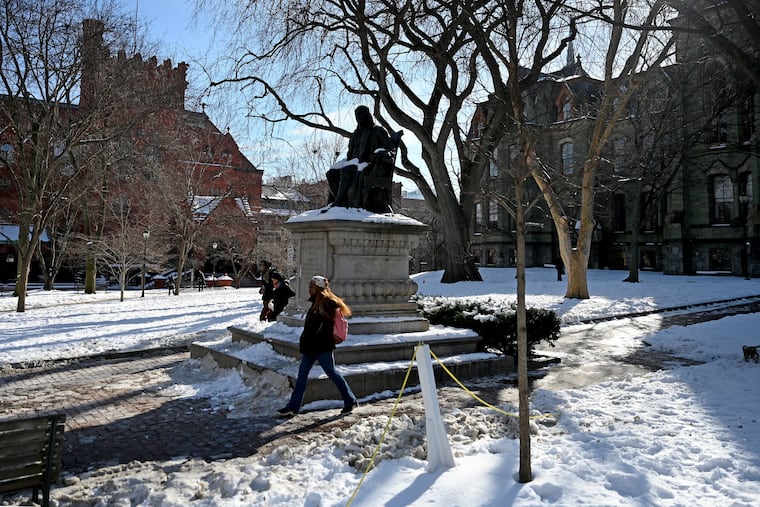With Dartmouth requiring SATs again and Yale considering it, what will Penn do?
Penn, like many colleges, suspended the requirement that applicants submit standardized test scores amid the pandemic.

Dartmouth College announced last week it would require applicants to submit standardized test scores again, beginning with the 2024-25 admissions cycle, for the class of 2029.
Yale, another Ivy League university, is considering reinstating the requirement, too, according to Forbes.
Asked about the University of Pennsylvania’s plans, a spokesperson for the admissions office said Thursday that the school hasn’t decided. Penn, like many other colleges, suspended its SAT and ACT requirements amid concerns about the impact of the pandemic. The university announced in January 2023 that it would extend the policy for a third year, through the 2023-24 selection cycle, for freshmen entering in fall 2024.
» READ MORE: Penn is the latest university to drop the SAT requirement for admission amid coronavirus
In a fall 2022 interview with The Inquirer, Whitney Soule, Penn’s dean of admissions, said of the SAT/ACT requirement:
“In admissions, our responsibility is to effectively evaluate and select students for Penn who will benefit from and contribute to our community and the academic opportunity we provide. To do that, we need to understand the usefulness of the materials that we require and how they contribute to our assessment. Because the move to test-optional was not something we had an opportunity to prepare for, we are taking the time now to evaluate if our processes are still effective when testing is absent.”
» READ MORE: Meet Whitney Soule, leader of the team who decides whether you get into Penn
Penn, one of the most selective colleges in the country, announced in June 2020 that it would drop the requirement, joining a growing number of other schools making the same decision as the pandemic gripped the world. Small selective colleges such as Haverford, Tufts, and Williams, and larger state universities, such as Rutgers’ New Brunswick and Newark campuses and West Chester University had already made the same decision.
Penn’s decision at that time followed an announcement by the College Board that an at-home SAT test would not be offered as planned, and as in-person tests had been canceled because of concerns about the spread of the virus.
But many other colleges had already scrapped the requirement, for other reasons even before the coronavirus. They included Temple, Bryn Mawr, Rosemont, Immaculata, Stockton, Rider, Rowan, Susquehanna, Ursinus, Delaware, Cabrini, Dickinson, Eastern, Franklin & Marshall, Gettysburg, La Salle, Muhlenberg, and St. Joseph’s.
Some critics have argued for years that the SAT disadvantages students from lower-income backgrounds and that it is a better measure of family affluence than of college readiness.
But Dartmouth said in announcing the requirement’s return that it found the tests actually help to identify high-achieving applicants from low- and middle-income backgrounds, those would-be first-generation college students, as well as those from urban and rural backgrounds.
Dartmouth said a study commissioned by president Sian Beilock and carried out by faculty found that “high school grades paired with standardized testing are the most reliable indicators for success in Dartmouth’s course of study,” according to an announcement on the school’s website.
“Our overall conclusion is that the use of SAT and ACT scores is an essential method by which Admissions can identify applicants who will succeed at Dartmouth,” the professors wrote. “Importantly, these test scores better position Admissions to identify high-achieving, less-advantaged applicants, and high-achieving applicants who attend high schools for which Dartmouth has less information to interpret the transcripts.”
Dartmouth said the test scores would be used as part of a holistic review.
“Of course, Dartmouth will never reduce any student to their test scores,” the school said. “It is simply one data point among many, but a helpful one when it is present.”